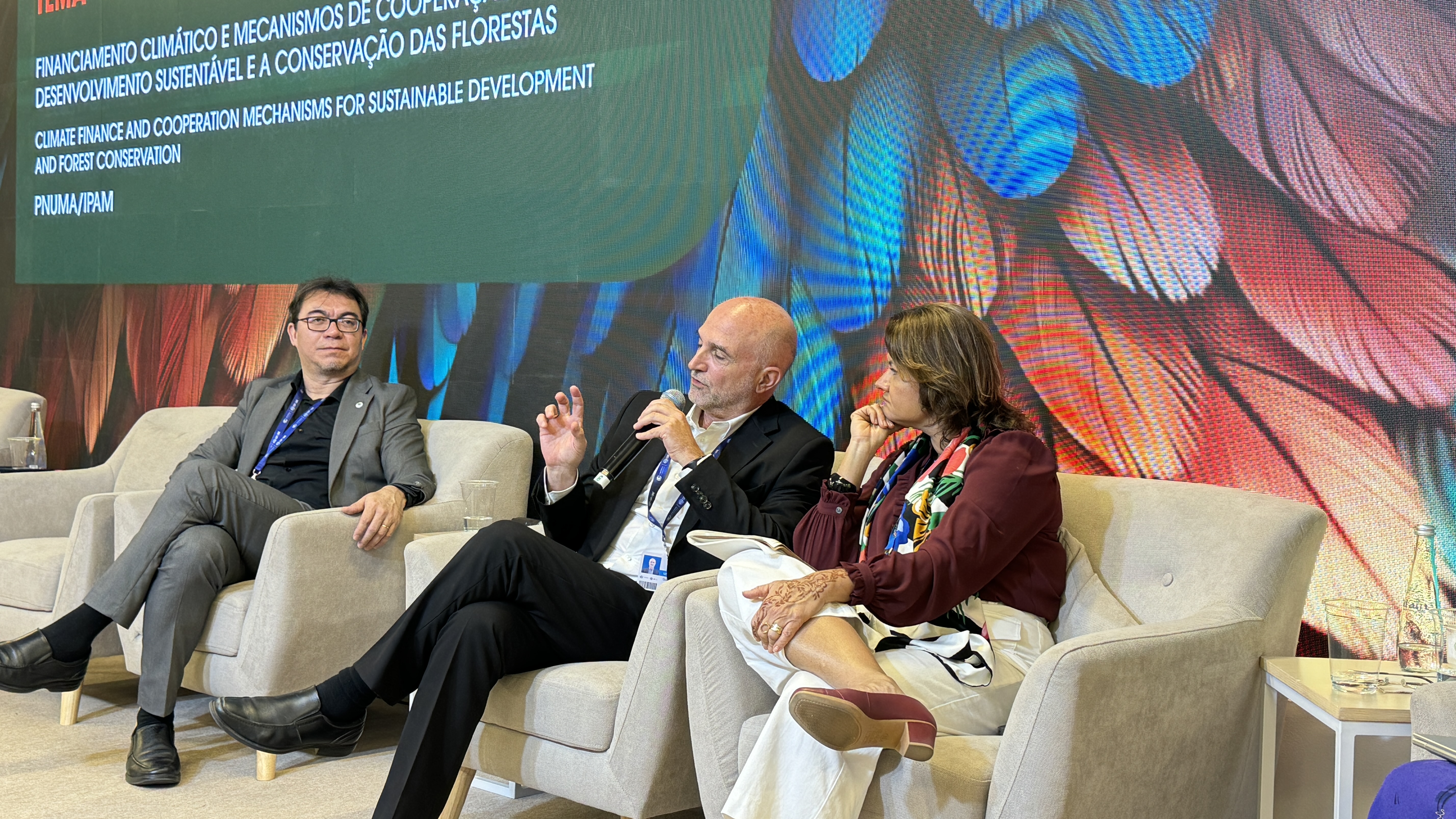Forests at UNFCCC COP28

WE NEED AN EVERYTHING, EVERYWHERE ALL AT ONCE APPROACH
"We are stuck in a loop of broken promises. Climate ambition remain insufficient, we see good progress but not enough. Forests alone can contribute with 4 gigatonnes of emission reductions to tackle climate crisis. This is not hopeless, that's why we need to be doing everything, everywhere all at once"
Inger Andersen, UNEP Executive Director remarked at the UN-REDD side event, “Everything All at Once: Supercharging Forest Solutions to the Climate Crisis”.
From 4-11 December 2023, UN-REDD participated in COP28 to co-organize the landmark 'Forests and Land Use Day,' to advocate for climate solutions to protect forests, strengthen collaborations, and provide technical advice to countries and partners on Article 6 and related forest and climate issues.
Explore this page to learn more.
TIME IS RUNNING OUT FOR OUR WORLD'S FORESTS
The Forests and Land Use Day message was heard loud and clear: we need to urgently scale up forest financing and ambition.
Moderated by Gabriel Labbate, the high-level dialogue discussed the need for an everything, everywhere all at once approach to reduce carbon emissions, with a focus on the crucial role of forests. The opening trailer highlighted the urgency of scaling action and ambition on forests. UNEP Executive Director, Ms. Inger Andersen, stressed the importance of tapping into forest-based solutions to meet the goals of the Paris agreement.
During the dialogue, speaker Ms. Albina Ruiz, Peru's Environment Minister, talked about Peru's pioneer nested approaches to REDD+ and carbon market initiatives involving indigenous communities, while Mr. Raoni Guerra Lucas Rajão from Brazil, discussed how the country has been effectively utilising REDD+ payments for reducing deforestation. Ms. Haruni Krisnawathi from Indonesia explained how their National Climate Registry supports transparency in NDC goals, and the need for bigger improvements. Mr. Daniel Ortega focused on principles for high integrity forest financing, outline core carbon principles, while Ms. Cecile Ndjebet emphasized the inclusion of Indigenous Peoples in forest conservation efforts and the need for commensurate funding that trickles down to women, youth and local communities. The event closed with Mr Eun-sik Park from Republic of Korea stating their renewed commitment to champion forest solutions in the Asian region and beyond.
During the reception on "Debt for climate and nature swap", government representatives from Argentina, Peru, Colombia, Ecuador and Honduras convened to explore the potential of debt for climate and nature swaps. Colombia and Peru shared their successful experiences in negotiating debt swap for conservation projects.
UN-REDD’s 15th Anniversary Reception celebrated the accomplishments of the UN-REDD Programme and provided a platform for participating countries to showcase the impact of the initiative on their respective landscapes.
Visitors at the UNEP pavilion had the opportunity to test out the prototype of the UN-REDD deforestation prediction tool in the Brazilian Amazon, which helps identify areas at risk, improving their chances of protection.
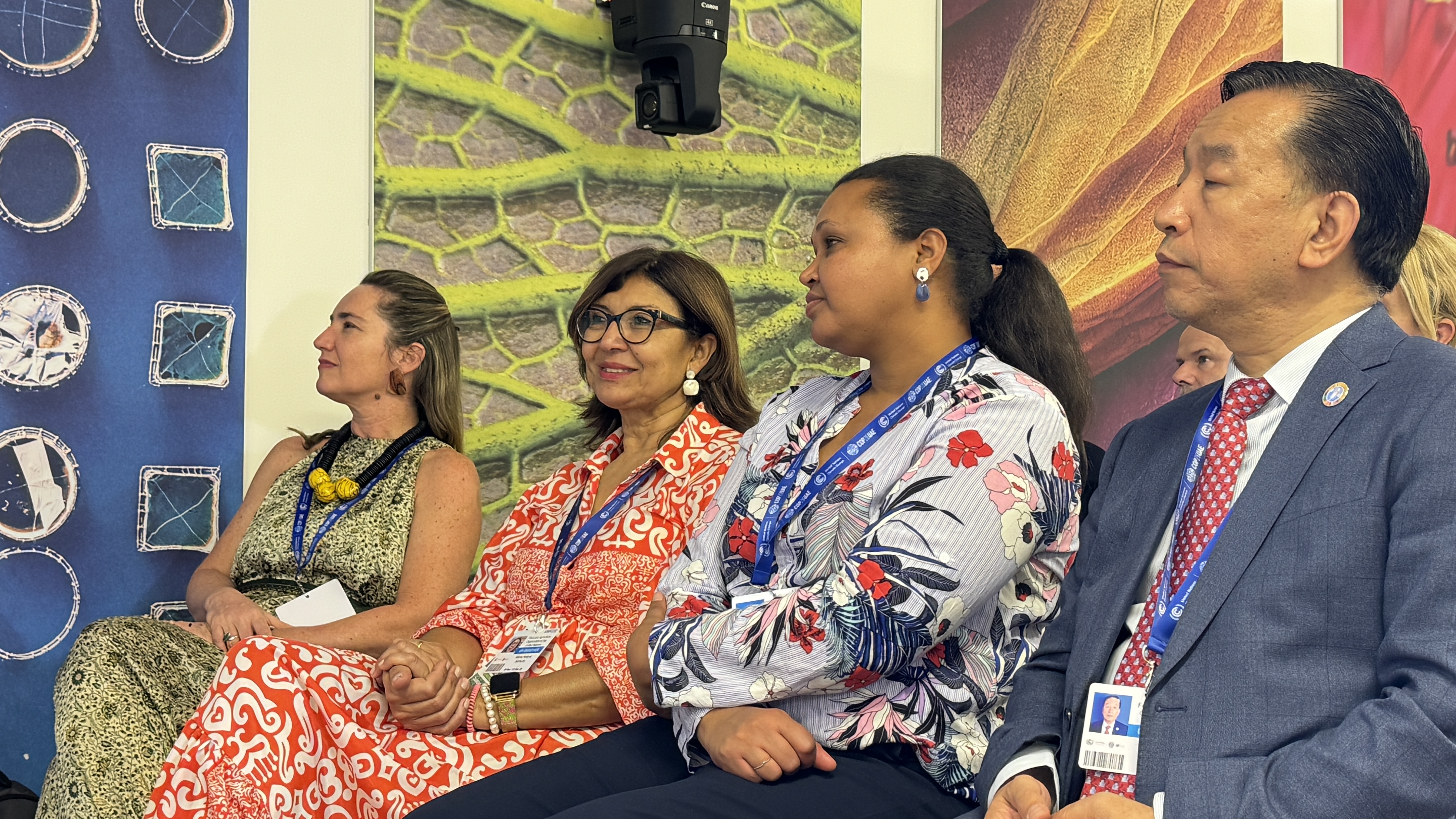
The "Beyond Carbon: Realizing Untapped Potential of Forests to Combat Climate Change" event, featured perspectives of participating CPF member organizations in addressing concrete pathways for realizing the full values of forests beyond carbon in the four focal areas of the CPF Joint Call to Action for Forests towards 2030.
UN-REDD joined IRI Brasil at the launch of 'Amazonia Viva' a virtual reality film that connects the public to the Amazon through an interactive journey.
CARBON MARKETS, BOTH VOLUNTARY AND COMPLIANCE, COULD PROVIDE SCALE AND AGILITY TO FINANCE FOREST SOLUTIONS
In the side event, “Bringing integrity to the Voluntary Carbon Market: A briefing for policy makers”, speakers including Gabriel Labbate unveiled the assessment process that identifies high integrity in the carbon market. The event also shed light on the role of The Integrity Council for the Voluntary Carbon Market (ICVCM) Core Carbon Principles and Assessment Framework as a public good.
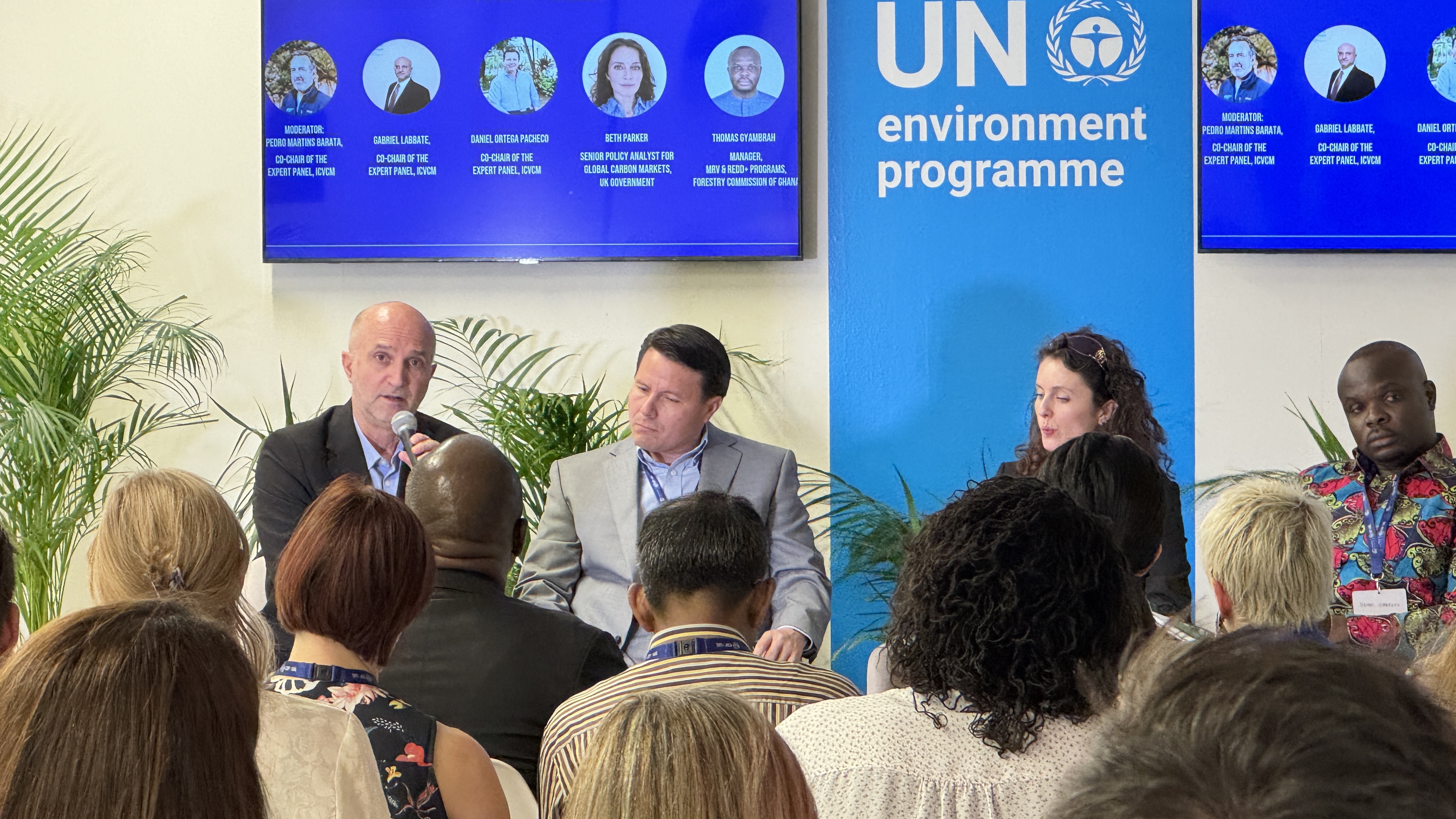
UNDP launched the High Integrity Carbon Markets Initiative to establish strong principles for all carbon markets, ensuring equal information and capacity among parties. It will work to ensure fairer negotiations on terms, prices, and conditions with buyers while emphasizing benefit sharing, SDG impacts, and environmental safeguards in carbon program design and implementation.
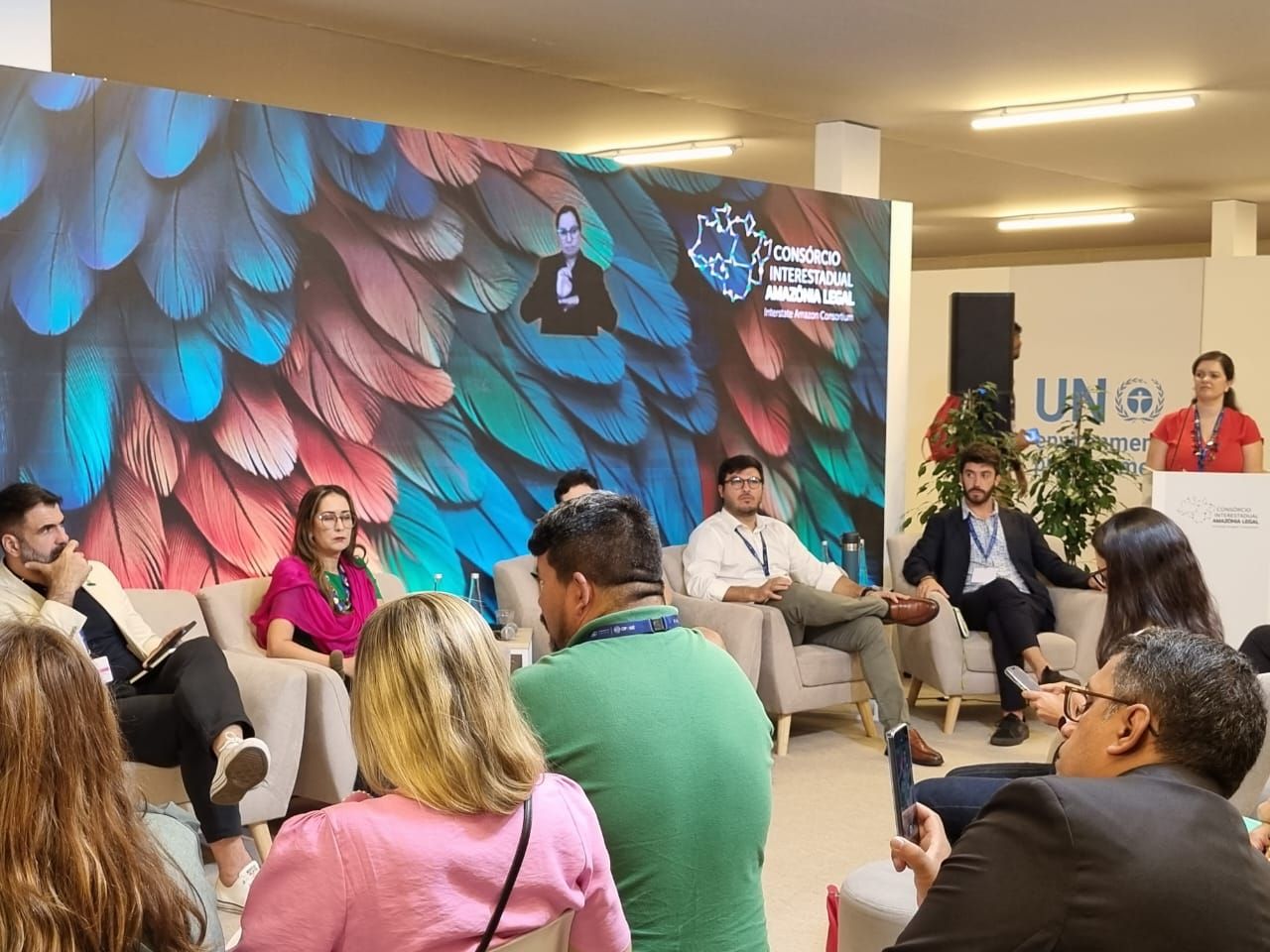

During the "Scaling Inclusive Green Finance and Carbon Markets in Emerging Markets" side event, panelist Rocío García spoke about early implementors of financing mechanisms. She also emphasized key capacity-building needs for developing countries in establishing voluntary and compliant carbon markets, including technical, project implementation, regulatory, stakeholder engagement, and financial sector capacities
At the "Climate Finance: Pioneering Cooperation for Sustainable Development and Forest Conservation" event, panelist Gabriel Labbate highlighted challenges in forest-based climate finance, including carbon markets and climate-for-debt swaps, stressing the role of the voluntary market and the importance of strengthening frameworks for market integrity.
SOME PROGRESS HAVE BEEN MADE ON THE ARTICLE 6 NEGOTIATIONS
The UNREDD team actively participated in Article 6 negotiations, with a focus on 6.2, 6.4, and 6.8. Under 6.2, discussions revolved around authorization processes for the cooperative approach and ITMO transfer, with unresolved issues regarding entities responsible for authorization, initial transfers, content, and leadership in the ITMO traceability process. The reporting process for countries involved in cooperative approaches, including adjustments to national GHG inventories, remained undefined.
In the context of Art. 6.4, discussions focused on contentious issues such as additionality and baselines. The establishment of baselines, crucial for determining credits for sale, posed challenges, as did discussions on additionality, particularly in a global context where all countries have climate commitments. The Supervisory Body's recommendations on removals under A6.4 were also deliberated, addressing COP27's request to reconsider the acceptance of removal-linked activities. While the decision suggested including removals in the mechanism, conditions to prevent reversals raised concerns. The approved text, after prolonged negotiations, emerged under Art. 6.8.
Decision texts are available for review: CMA item 14(a), CMA item 14(b), and CMA item 14(c).
THERE IS NO PROGRESS WITHOUT EQUITY. INDIGENOUS PEOPLE, WOMEN AND LOCAL COMMUNITIES ALL PLAY A KEY ROLE IN PROTECTING, RESTORING AND SUSTAINABLY MANAGING THE WORLD'S FORESTS.
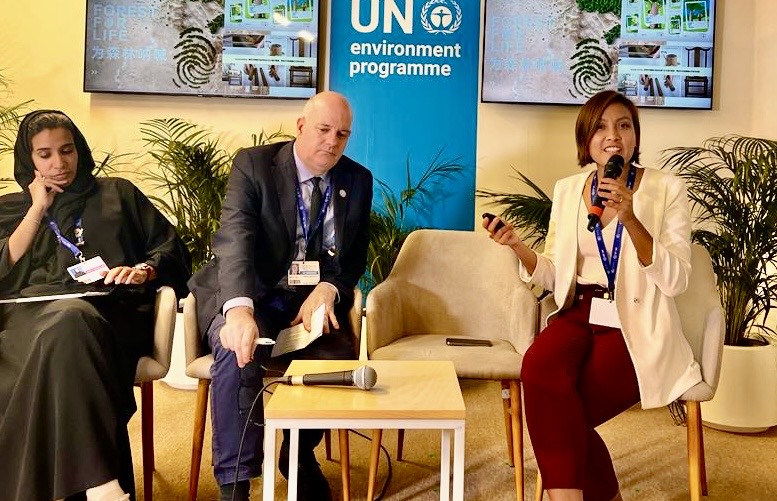
COP 28 OUTCOME FOR FORESTS AND NATURE-BASED SOLUTIONS
As a result of the formal COP28 negotiations, for the first time, the goal of “halting and reversing deforestation and forest degradation by 2030” has been included in the Global Stocktake decision. Another key milestone for forests during the conference has been the request for the Green Climate Fund Board to continue its work on REDD+ results-based payments.

